10, July 2020
Biya regime forcing civilians to do guard duty 0
Soldiers in Mozogo, in the Far North region of Cameroon, have forced civilians to perform local night guard duty to protect against attacks by the armed Islamist group Boko Haram, Human Rights Watch said today.
At the beginning of this forced labor, from mid-March to late April, 2020, soldiers beat or threatened those who refused to perform the tasks, although Human Rights Watch was told that for now, following denunciations by local nongovernmental organizations and the National Human Rights Commission, the beatings appear to have stopped. However, people in the town report that they continue to live in fear of beatings resuming, and that the forced labor and threats continue.
“The Cameroon authorities should immediately stop forcing civilians to perform night guard duty and instead protect civilians through lawful means,” said Lewis Mudge, Central Africa director at Human Rights Watch. “Cameroonian authorities should investigate the reported beatings, threats, and forced labor and members of the security forces found to be responsible should be brought to justice.”
Boko Haram has since 2014 waged a violent campaign against civilians in the Far North region. The Cameroon army started to forcibly mobilize civilians after a February 4 Boko Haram attack, during which its fighters burned an estimated 40 homes in Mozogo and killed 2 civilians, one of them a blind man, who was killed and then burned inside his home.
In April and May, Human Rights Watch interviewed 15 people by telephone who have been forced to perform night guard duty under threat. Six had been beaten for initially refusing to join. Human Rights Watch also spoke with 12 Mozogo residents who witnessed but had not been subject to the forced labor, 4 victims and witnesses of other alleged military rights violations, and 4 representatives of local human rights groups.
Human Rights Watch shared its research findings on June 9 with Ferdinand Ngoh Ngoh, the secretary-general and Samuel Mvondo Ayolo, the Civil Cabinet director, both at Cameroon’s Presidency, requesting responses to specific questions. Human Rights Watch also followed up with a senior official from the Presidency on June 18. Cameroonian officials have yet to respond.
The civilians who were forced under threat to perform guard duty received no compensation and were put in harm’s way. They were not trained, were unarmed, and were told to run back to town to alert the army if they saw Boko Haram fighters approaching. Human Rights Watch has been monitoring local media, including Sembe TV, L’Oeil du Sahel, and reports by nongovernmental groups, for accounts of attacks by the militant Islamic group. This monitoring indicates that since January, Boko Haram has carried out over 200 attacks and raids in the Far North region, killing at least 126 people.
Mozogo residents said the military unit based in Mozogo – the 42nd Motorized Infantry Battalion (BIM) – worked with local authorities to compile lists of about 90 men and at least one boy who were required to join the night guard duty and displayed these lists in public spaces. They identified at least 12 locations in and around Mozogo as posts for night duty and assigned nine civilians to each location. Those who did not willingly comply were sought out in the neighborhoods and threatened with death and beatings. Some were beaten in public.
According to victims, witnesses, and residents, at least 40 people were threatened with death and beatings or were beaten for refusing to take part.
A 38-year-old man said that a soldier beat him after he initially refused to perform night guard duty in early April: “A soldier came to my house around 10 p.m. He asked why I skipped my duty. I said that it was not my job. So, he forced me to do push-ups and hit me several times with the flat end of a machete. Then he took me by force to the river to serve guard duty.”
Once the civilians were on duty, it appears, the soldiers usually stayed until midnight, then left the civilians alone to guard the areas without any means of protection and communication. The civilians said that they would generally stay from 7 p.m. until around 3 or 4 in the morning.
A 28-year-old man who was forced to serve as a night guard for at least two months, described the forced labor: “They said everyone whose name is on the lists needs to go, but they don’t pay us anything, they don’t give us anything to protect ourselves. If Boko Haram attacks Mozogo, we will be the first targets.”
At least 40 men fled Mozogo after soldiers threatened them. A 23-year-old university student said he fled to Maroua, 100 kilometers away, after being beaten and forced into guard duty. “If I wanted to be a soldier, I would have joined the army,” he said. “But I chose to study. I do not want to spend my nights in dangerous locations and face Boko Haram fighters.”
The night guard system in Mozogo has no legal framework and those forced to perform it are not only untrained, but also lack the necessary experience and supervision needed to perform the dangerous security tasks demanded of them.
Boko Haram continues to wreak havoc in the Far North region, carrying out abusive attacks, often indiscriminate and sometimes directly targeting civilians. The attacks have included suicide bombings in crowded civilian areas; kidnappings, including of children; and widespread looting and destruction of civilian property. As a result of Boko Haram’s abuses, over 297,000 people have fled their homes and are internally displaced across the Far North region. Cameroon also hosts approximately 113,000 refugees who have fled Boko Haram’s attacks in Nigeria.
In the face of such atrocities, the government of Cameroon has the legitimate duty to protect civilians, but it must do so while upholding its human rights obligations under domestic and international law, Human Rights Watch said. Cameroon has ratified both the International Covenant on Civil and Political Rights (ICCPR) and the 1930 International Labour Organisation (ILO) Forced Labour Convention No. 29, which prohibit the use of forced or compulsory labour.
Human rights groups have reported widespread human rights violations and crimes under international humanitarian law by security forces, including extrajudicial executions, arbitrary arrests, enforced disappearances, incommunicado detention, systematic torture, and deaths in custody. Witnesses, victims, and residents have reported that security forces in and around Mozogo continue to commit other abuses, including extortion and sexual violence.
“Cameroon security should address threats posed by Boko Haram in a way that respects rights and wins the trust of the population,” Mudge said. “That trust has been broken by a climate of near total impunity for the military’s abuses.”
Soldiers from the 42nd Motorized Infantry Battalion have been based in Mozogo since at least the beginning of 2020 and have forced civilians to perform local night guard duty since mid-March. When people refused to perform this duty, soldiers beat them or threatened them. In April, the National Human Rights Commission visited Mozogo and raised concerns with local authorities about this practice. Local human rights groups echoed this call saying it is illegal and puts people at risk. While reports suggest that the beatings have stopped, people continue to report threats, and participate in the duty out of fear of abuse at the hands of soldiers.
Abuses Related to Forced Guard Duty
Beatings
A 33-year-old man said he was beaten by a soldier in April for arriving late to his night guard duty.
I had a family emergency and went to the hospital to assist a relative. I arrived late for the night guard and a second-class soldier beat me up. He slapped me several times. I was in pain for two days; my ears were hurting so much. He told me not to tell anyone what had happened.
A 25-year-old farmer said he was beaten by soldiers in mid-March and forced to perform the night guard duty:
Several soldiers came to my neighborhood late in the evening. They were looking for men whose names were on the lists. My name was on the list. The soldiers approached me and said, “You are going to spend the night by the river and carry out the guard duty. If you do not agree, you’ll pay the consequences.” I replied that I did not want to go, so they slapped me several times in my face and forced me to go. Since then, I have no other choice by to go. I do not want to be beaten again.
Threats
A 43-year-old man said that he was threatened by soldiers in mid-March when he refused to join the night guard duty for health reasons:
A BIM officer came to my neighborhood and asked me why I did not go to perform my night guard. I explained to him that I had been sick, and the doctor had recommended me to rest. [The officer] replied: “If you don’t go, I am going to kill you, I’ll cut your throat.” Two days later, another solider came to my home, broke the door, and threatened to beat me if I didn’t carry out the night guard duty. It is only thanks to a neighbor, who interceded for me, that I was not beaten up.
A 17-year-old boy told Human Rights Watch that he is living in hiding to avoid night guard duty.
When I learned my name was on the list, I got scared. I did not want to go and spend the night by the river because it is dangerous. Between March and April, the soldiers came three times to look for me at my place. Since then, I hide. I am afraid that if they find me, they will force me to go and if I refuse, they’ll beat me up.
A 24-year-old student said he was forced to carry out a night watch guard following repeated threats by a soldier in mid-March.
I was on my motorbike outside my home at 9:30 p.m. when a soldier came, accompanied by a member of the vigilante committee. He ordered me to carry out the night guard duty by the river. I refused and I told him I am student, not a soldier. He replied: “You’ll go, or we will force you to go.” I asked him if I could speak with his boss, who came and let me go. But since then, I fled Mozogo and now live in Maroua.
Culled from Human Rights Watch
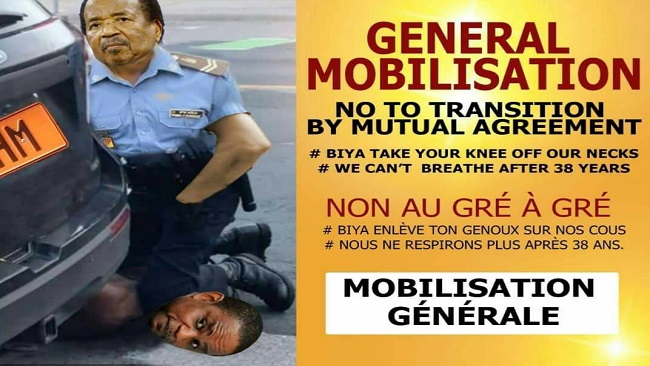
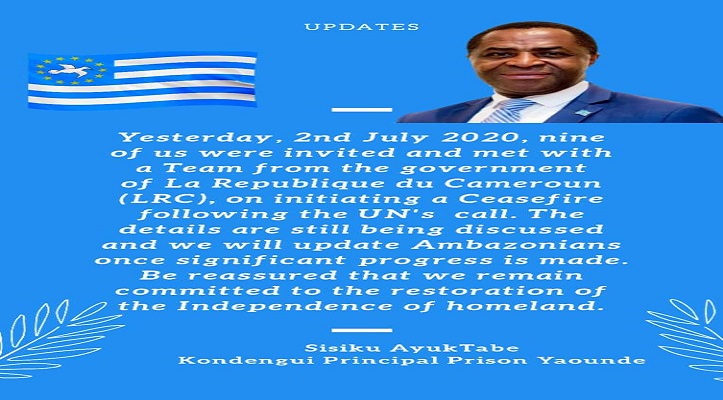

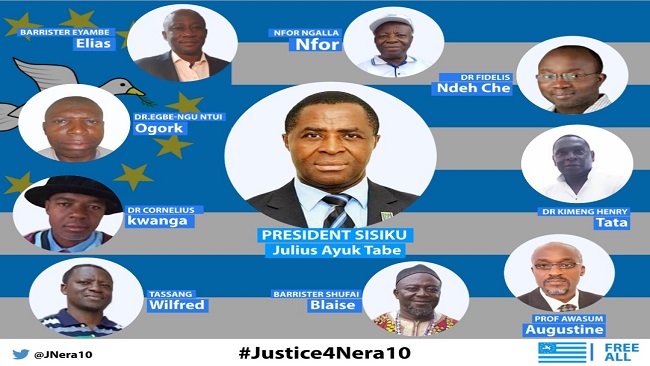
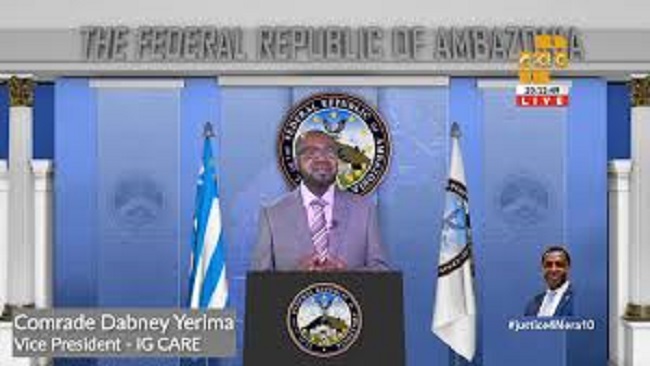
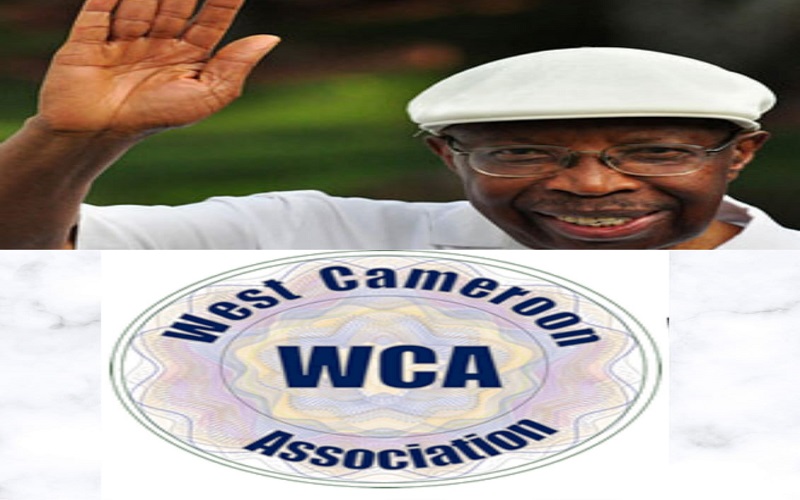
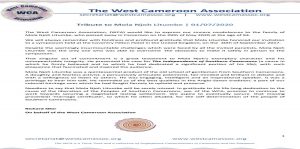
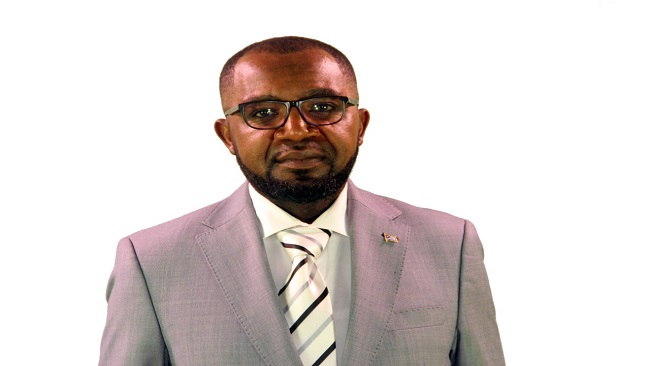
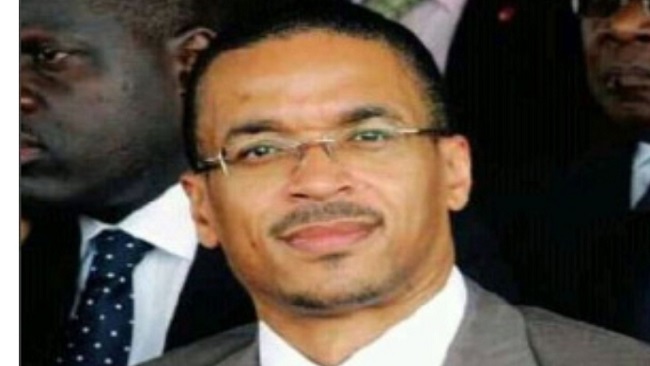

















14, July 2020
Southern Cameroons: Vice President Yerima’s Address To The Nation On The Amba 4 Points Agenda 0
AMBAZONIAN VP ADDRESS TO THE NATION ON THE AMBA FOUR POINTS AGENDA
Fellow Ambazonians,
Today I come to you out of genuine love for our country Southern Cameroons (Ambazonia) to address a matter of national importance. The best hope for advancing our struggle is in engaging with honesty and humility. Endeavour, generosity and genuine intentions have put us where we are today as a people. As a result of your generosity and hard-work, we have come this far in our quest for justice and liberty.
This struggle has reached a point of no return. The upper gear for a free Ambazonia has been engaged and will not be reversed. Ambazonia is not for turning! We are committed to independence or resistance forever.
After months of negotiations and diplomatic wrangling amongst nations, the United Nations Security Council (UNSC) on July 1 2020, unanimously adopted UN resolution 2532, endorsing UN Secretary General, Antonio Gutterres’ call in late March 2020 for a global ceasefire. The resolution has three main provisions: (i) a demand for a cessation of hostilities, (ii) an appeal for an immediate 90-day pause to allow for humanitarian activities, (iii) a plea for intensified international cooperation to tackle the COVID-19 pandemic.
Many countries have signed this resolution but La Republique du Cameroun has not. Instead, they made a move to engage with our leaders in detention under President AyukTabe to explore the option of both nations calling for a ceasefire in the Cameroons colonial conflict. On 2 July 2020, the regime in Yaoundé called a meeting with nine of our leaders in detention.
Since that meeting, our airwaves have been polluted with inaccuracies and deliberate distortions. The peddlers of these inaccuracies intend to poison the minds of Ambazonians with the fiction that “prisoners do not negotiate for freemen”. As a wise negotiator, the great Nelson Mandela employed the phrase in the 1980s to negotiate his release from detention. Any attempt to misinterpret the great man is disingenuous and must be condemned in the strongest terms.
I challenge you to show me a free Ambazonian. None of us is free when we can’t freely visit the land we call our own. Freedom is much more than social media activism and self-exile. The idea that any genuine Ambazonian is free anywhere on this planet is a myth. We all die when one of us is killed. We are all in prison when one of us is jailed as a result of our cause.
The words widely misrepresented on social media by some frontline leaders are “Negotiations” and “Dialogue”. Resolution 2532 pushes for a ceasefire to allow for humanitarian aid during the COVID-19 pandemic.
Our leaders in detention are public servants doing their best for our nation against all odds. Their personal pain is intense but they are still going strong for our nation. They are called to a mission to liberate the Southern Cameroons; a mission to fight for freedom over tyranny and oppression. Owing to their dedication, astuteness and wisdom, they crafted four points as a basis or pre-requisite for Ambazonia agreeing to a ceasefire;
These four points were crafted by our leaders as a condition to employ confidence building measures that will eventually lead to a ceasefire and create an enabling environment for sustainable justice and peace. The four points from the leaders were created with the Ambazonian public in mind which is standard procedure before any subsequent evolution into a legal document. The pressure from the international community upon La Republique du Cameroun is rock-solid and we must seize our moment. La Republique du Cameroun should stop deceiving herself that Ambazonia will be defeated in the battlefield.
To the leaders of frontline movements, I say to you that as leaders of this revolution, we owe our people a debt of honesty and reality in finding a lasting solution to the war in our country. True leadership does not mean we have to kill or abandon our fellow leaders in detention. Our revolution must be characterized by mutual respect, not by falsehoods and contaminated politics. The individual and collective sacrifices from our people in Ground Zero must be carefully considered in every move we make. We must balance our national goals with their daily misery. Any condition that shortens their suffering while leading the nation to its objective of freedom and independence must be supported.
Pre-talks are not Negotiations or Dialogue! I want to assure all Southern Cameroonians that neither of that is taking place between President Ayuk Tabe and the Government of La Republique du Cameroun. Our President has made it abundantly clear that no single person can negotiate for Ambazonia. It will take our finest experts from across the board to engage in negotiations as the complexity of the assignment is enormous.
Our people are desperate in the forests, disrespected by La Republique du Cameroun military and despised by the regime in Yaoundé. They are on edge and seek relief from their distress. They need us now more than ever. They have devoted faith, hope, and trust in us but our actions over the last twelve days have been dishonorable. The diaspora must send our people in Ground Zero a signal that they care. This is a time for action, integrity and honesty.
It is alarming, pointless and irresponsible for any Ambazonian of good-intent to disagree with the move from our leaders in detention. Since the meeting of 2 July 2020, we have reached out to nearly all the frontline leaders of this revolution. We have personally briefed Hon Wirba, Dr Cho Ayaba, John Mbah Akuroh, Dr Ebenezar Akwanga, Boh Herbert, Dr Fontem Neba and Abdul Karim just to name a few. We have also reached out to the clergy and civil society organizations in G0 and the diaspora. Most Activists, Restoration Forces and tens of Ambazonian legal minds have also been briefed. Our resolve has been to bring the Ambazonian family together. Any leader who says one thing in private and propagates a different narrative to the nation in public is not doing our nation justice.
For all who see this revolution as a game or business, I have news for you; your game is up. The smear campaigners, blackmailers, doomsayers, tricksters and social media warlords must understand that they will never succeed in derailing the commitment of Ambazonians. The people of Ambazonia are better than what you are serving them. There is an appropriate season for everything. There is a time to compete and a time to cooperate. The time for cooperation is now. The time for all Southern Cameroonians to back the four points tabled by our leadership team to La Republique du Cameroun as conditions for any ceasefire is now. The Ambazonian people are watching.
To our Restoration Forces; I salute your courage, dedication and selflessness. Your bravery and commitment to the Ambazonian struggle is indisputable. Your collective sacrifice to defend our parents, brothers, sisters, children, and properties from the oppressor will live long in the consciousness of our nation. We are proud of you. The optics is good, and we are determined more than ever to provide you with what is needed to defeat the oppressor. Stay committed and resilient, your sacrifice is the only thing that has brought us to this stage in which the oppressor is willing to talk. We must continue with our coordinated and ruthless firepower in self-defence.
Fellow Ambazonians in G0, G1 and G2, your daily suffering is our concern. The Interim Government of Ambazonia in all its decisions balances your suffering with the national goal of freedom and independence. Your leaders in detention are much too intelligent and committed to your dream and would settle for nothing less than total independence. After 59 years of abuse and subjugation, we cannot be satisfied by just returning to the status quo.
Time is neutral and does not change things but people with vision change things. No generation can choose the age or circumstance in which it is born but every generation can choose to make the age in which it is born an age of enlightenment, freedom and justice. Ours is that generation of Southern Cameroonians endowed with the task of attaining freedom for our people. Let us stand together for history to judge us favorably.
Factionalism in a revolution is not limited to Ambazonians. La Republique du Cameroun also has factions in her midst; those that are in support of war without end and those who want peace and justice with Ambazonia. For the La Republique du Cameroun advocates of war against Ambazonia, I have bad news for you; you will never defeat the never-again generation of Ambazonians in the battlefield. I urge you to join in good faith your brothers who want peace between our two nations
Fellow Ambazonians, when the trumpet of negotiation sounds, let us walk to the table with one voice and one vision to free our homeland. Our independence is non-negotiable. Let our collective voices mirror that of President AyukTabe and our leaders in detention whom despite their present personal plight articulate our struggle with courage and put Ambazonia first. The path to freedom and independence is always difficult but despite the current darkness, if we muster our collective energies and talents, Buea will be a reality soon.
Our time has come. Our faith, hope, and dreams will prevail if we give truth and honesty a chance. Our time has come. No amount of atrocities and slaughter from Yaoundé can hold us down. No lie can live forever. Our time has come. We must leave social media politics behind and unite as one people. Our time has come. If we unite as a people, no force on this earth will stop us. Our time has come. It’s Independence or Resistance Forever.
Thank You and God bless you all.
DabneyYerima
Vice President
Federal Republic Of Ambazonia